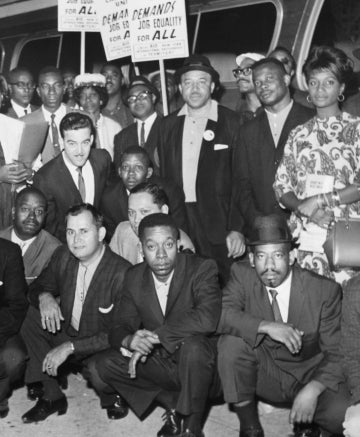Headline News
Black History Is Teamster History

The contributions of black members to the success of the Teamsters Union are numerous, varied and as old as the union itself. Black team drivers attended the first Convention in 1903 and were active in all aspects of the union from the beginning. That commitment remains strong today.
The Teamsters Union has traditionally been ahead of other unions in terms of the treatment of minority members, calling for “no color line” in the union as early as 1906. The union began actively seeking to organize black men and women around the same time. Black members made up half of the executive board at the first New Orleans local in 1903 and black women helped establish one of the first “color free” contracts in the country in 1917 as Teamsters negotiated equal pay for black and white laundry women. That foundation of equality led black members to become strong advocates for civil rights and other social justice causes through the years.
General President James R. Hoffa was strongly opposed to segregation of any kind and chose to forfeit prospective members rather than abandon the principles of the union. At one point in the 1950s, he and Vice President Harold Gibbons traveled to New Orleans to lead an organizing campaign at a chemical plant but were stonewalled by white workers demanding a separate local for black workers. Hoffa refused, knowing they would lose the election because of the decision. Hoffa was angry about the loss but felt the union was better off without such racist members. “We don’t need ‘em,” he said. “Their way is not the Teamster way.”
Joe Nero, who became a member of Local 272 in New York City in 1941, remained a proud Teamster until his death in 2004 at the age of 103. He always maintained that unions were the best thing to happen to black workers.
“The Teamsters did me right and gave me a good life. They didn’t care if I was black or white,” he said. “Being in the union was the difference between a good life and a tough one. Always was, always will be.”
This does not mean it has been an easy road for minorities in the union. Black members made up a smaller segment of the union and often faced many of the same prejudices from individual fellow members on the job as they did in society at large. But they had the courage to stand fast and demand respect and dignity for themselves and their families. We are all richer for it.